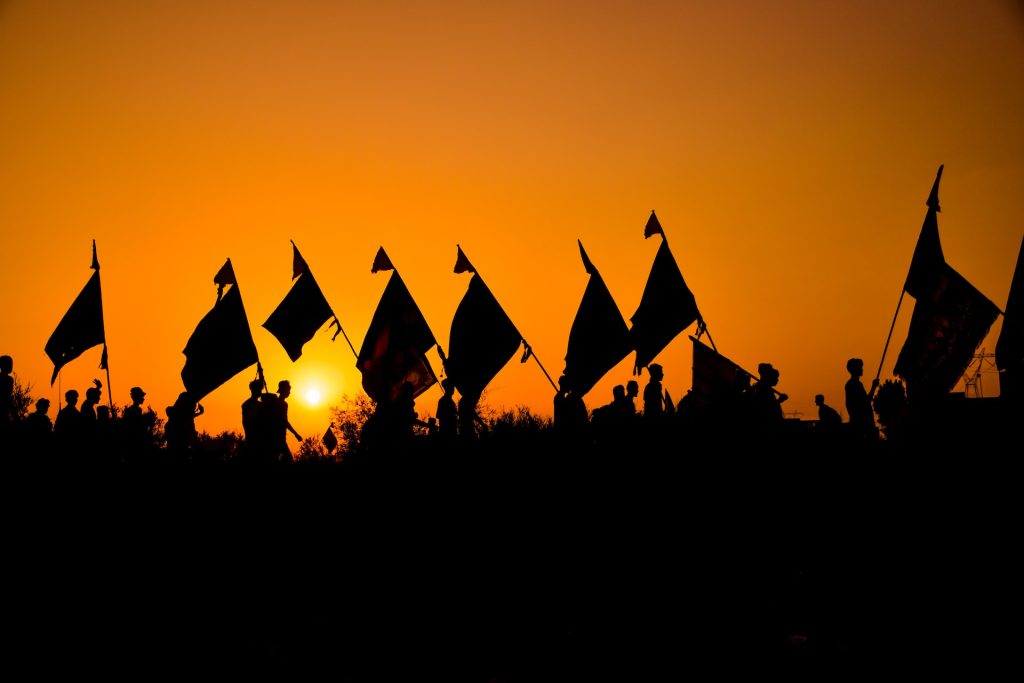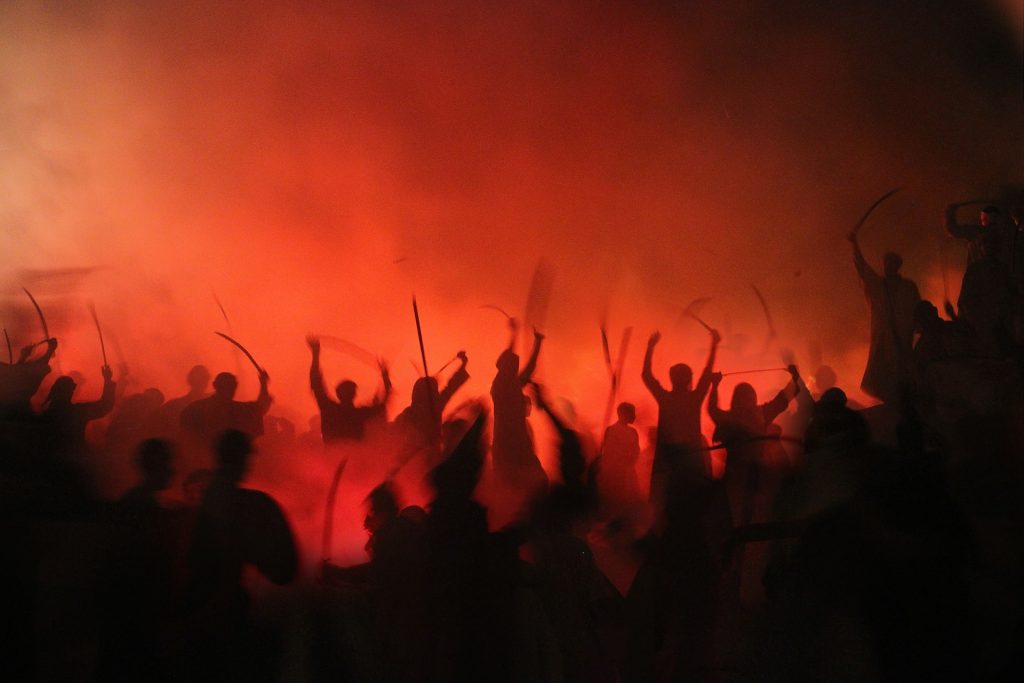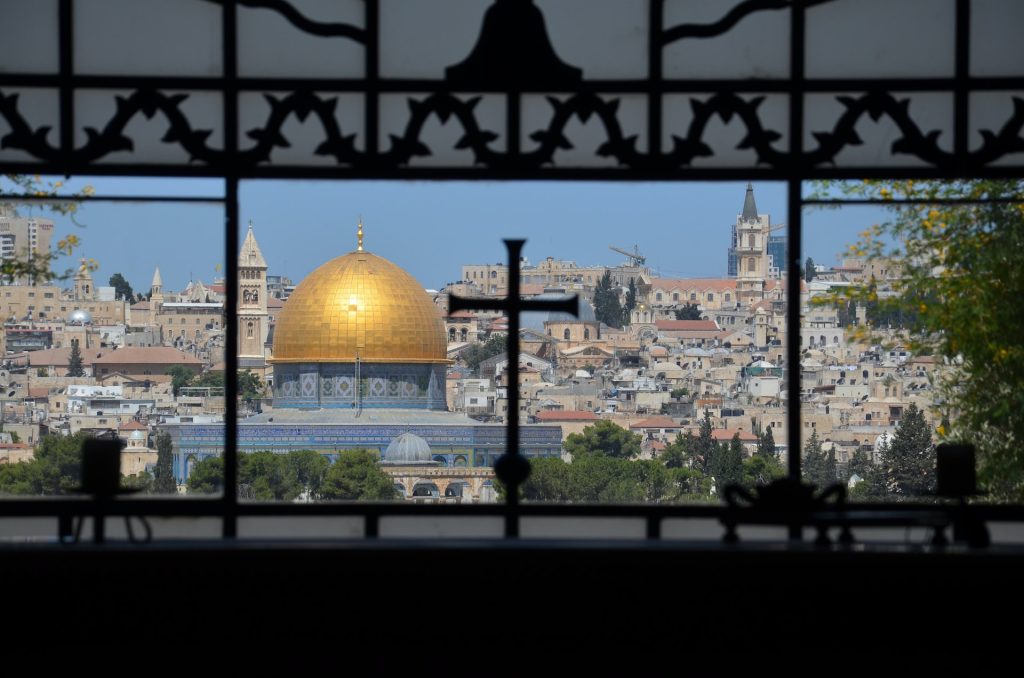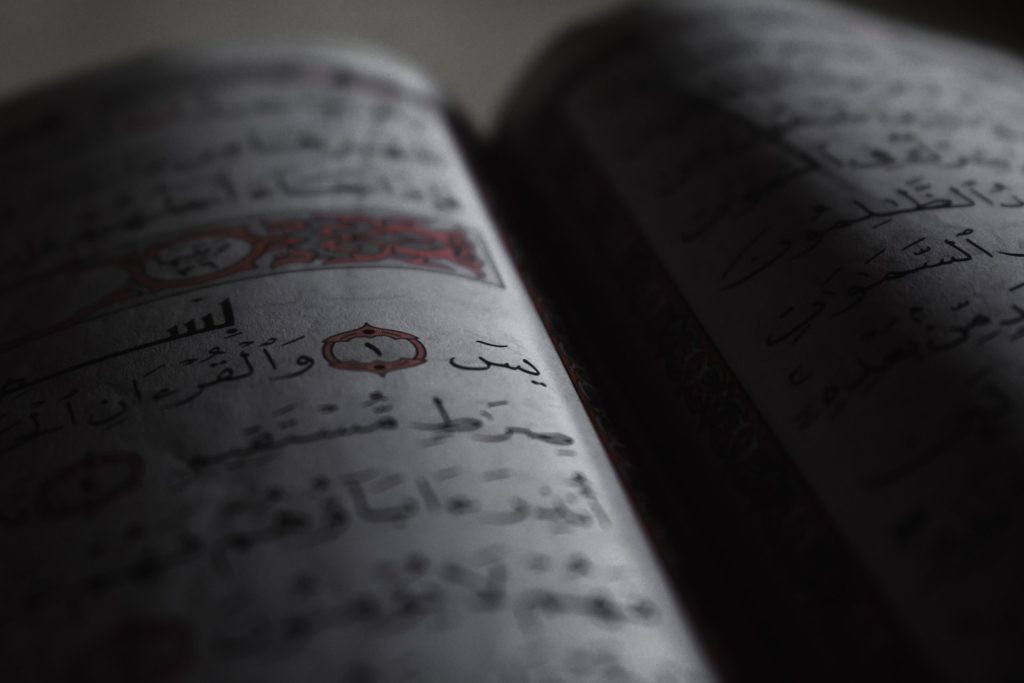It might be that God was fed up with humanity.
After sending them many prophets, they were still associating partners with Him.
So for the last messenger—Muhammad—, He gave a special derogation. People will either believe in the one God or die!
But is this the case?
Forced Conversions?

Islam is a missionary religion.
in The Preaching of Islam, Sir Thomas Arnold gives a definition of the term:
“[A religion] in which the spreading of the truth and the conversion of unbelievers are raised to the rank of a sacred duty by the founder and his followers.”
However, this sacred duty is not brought to existence by any means necessary.
It is contradictory to say Muhammad (pbuh) imposed Islam by the sword when the Quran stands for the opposite—“There is no compulsion in religion.” [Quran 2:256]
Even when the Muslims had the upper hand, they weren’t forcing people to accept Islam:
“And if anyone from the polytheists asks for your protection [O Prophet], grant it to them so they may hear the Word of Allah, then escort them to a place of safety, for they are a people who have no knowledge.” [Quran 9:6]
You can’t fight people and at the same time call them to Islam. It’s one or the other.
When the Hudaybiyyah treaty was signed between Mecca and Medina, Allah described it as a clear victory; Muslims perceived it as a humiliating defeat.
Two years later, the number of Muslims doubled.
In peacetime, people can converse freely and make up their minds.
Muhammad the Militant?

In his book club session about the Prophet (pbuh), Sheikh Yusuf Hamza did the math.
The total number of the expeditions and battles of Muhammad (pbuh) is 29.
Usually, the Prophet (pbuh) does not participate in expeditions.
In Muhammad—A Prophet for Our Time, Karen Armstrong clarifies the goal behind them:
“Their aim was not to shed blood, but to secure an income by capturing camels, merchandise, and prisoners, who could be held for ransom.”
This was a common practice in Arabia.
And when it’s directed at the people who drive you out of your home, it’s fair game!
Going back to the numbers.
Out of 29 expeditions and battles, only 11 had fighting (which is 70 days).
If we consider the 8142 days of prophethood, fighting represents not even 0.9% of Muhammad’s mission!
Not only the mortality rate of these days of fighting was low, but we were far from the savage customs of Arabia at that time.
The captives were not tortured or slain; the corpses were not mutilated.
Prisoners were either ransomed or released.
What’s the Reason Behind the Permission to Fight?

What’s better than the Quran to understand the Prophet’s actions?
“Permission to fight back is granted to those being fought, for they have been wronged—God has the power to help them. They are those who have been expelled from their homes for no reason other than proclaiming: “Our Lord is Allah.” If God did not repel some people by means of others, many monasteries, churches, synagogues, and mosques in which Allah’s Name is often mentioned, would have been destroyed. Allah will certainly help those who stand up for Him. Allah is truly All-Powerful, Almighty.” [Quran 22:40]
During the 12 years that followed the first revelation, Muhammad (pbuh) and his followers were attacked, persecuted, or subjected to famine conditions.
No self-defense was allowed. The policy was to remain patient.
Any accusation of violence would tarnish the purpose of the delivered message.
Not satisfied with expulsing the Muslims, the pagans launched military campaigns to crush them.
The permission is then given to protect the freedom of worship, not only for Muslims but all monotheistic religions.
A Violent Religion?
The Prophet doesn’t deviate from the Quran.
If the message is violent, the messenger will also be violent, and so the followers.
But is this the case?
“Allah does not forbid you from dealing kindly and fairly with those who have neither fought nor driven you out of your homes. Surely Allah loves those who are fair.” [Quran 60:8]
Anyone in their right mind can understand this.
Muhammad (pbuh) goes with peace whenever it is possible, but he’s not a pacifist.
He said:
“Do not wish to meet the enemy in battle, but if you meet them, be steadfast.” [Al-Bukhari and Muslim]
He knew more than anyone else about the evil of war and its impact on faith and commerce.
The devastating war between the Byzantines and the Sasanians broke up when he was still a merchant. It continued for over two and a half decades exhausting the human and material resources of both sides.
No, the Prophet’s mission was the opposite of seeking war:
“We sent you [Prophet] only as a mercy to all people.” [Quran 21:107]
And Peace It Is

While others were only interested in the ‘Prophet of War’, Juan Cole focused on what Islam says about peace.
In his book Muhammad, Prophet of Peace Amid the Clash of Empires, he observed that, even before prophethood, peacekeeping was Muhammad’s ancestral vocation.
Part of his clan’s duty is to settle feuds through peaceful solutions.
Cole also noticed how the Quran emphasizes peace. In fact, it places it at the pinnacle of heaven.
Commenting on the night of power, he wrote:
“It becomes clear that one reason the descent of angels and revelation makes the night of power a time of peace is that they bring a little heaven down the earth when they come.”
“Peace it is until the rising of the dawn”. [Quran 97:5]
Peace is also what Muhammad (pbuh) was advised to follow in the time of persecution:
“The servants of the Lord of Mercy are those who walk humbly on the earth, and who, when aggressive people address them, reply with words of peace.” [Quran 25:63]
Even in the time of war, if there is a chance for peace, Allah instructs His messenger to seize it:
“If the enemy inclined towards peace, you [Prophet] must also incline towards it, and put your trust in God: He is the All-Hearing, the All-Knowing.” [Quran 8:61]
The verses referring to peace are too many to be listed here.
Final Thoughts on Muhammad

Oxford’s definition of a militant person is someone favoring extreme, violent, and confrontational methods.
Nothing in Muhammad’s character, behavior, or the commands he received, fits the definition of a militant.
The only thing we could accuse the Prophet (pbuh) of is to grieve over the denial of the message he came with.
When you read some biographies on Muhammad (pbuh), you feel like all he did was warfare.
But unlike the disbelievers, he wasn’t filled with the fever of war.
It is such a waste for humanity to have this mis-narrative associated with his name.
Knowing that you are the seal of the Prophets is a heavy burden.
Allah had to remind him that he has no control over people’s hearts.
Their choices are their responsibility. His mission is only to remind:
“We have sent you [O Prophet] only as a deliverer of good news and a warner to all of humanity, but most people do not know.” [Quran 34:28]
Muhammad (Peace be upon him) fulfilled his mission —giving back God to man and man to God— and left this world better than he found it.
Article published: November 18, 2022
Popular Articles
- 7 Lessons from Luqman that Will Make You Wise
- Are Muslims Meant to Be Sleep Deprived?
- How to Enjoy Salat and Make it Meaningful
- Mongols Invasions: Some Forgotten Lessons to Today’s Muslims
- Islamic Psychology: A Model Where Faith Has Its Place
- Muslims Judging Each Other: Why and How to Be Less Judgy
- 3 Tips to Unlock the Believer Mindset
- How to Honor the Prophet
- Healing with the Medicine of the Prophet
- How to Make People Change their Mind: Persuasion!
- The Value of Time
- Islamic Medicine from a Sufi Perspective (Part 1)
- The Certainties of Muslims in an Uncertain World
- Allah According to Allah: The Beauty Behind the Verse of Light
- 5 Powerful Duas from the Quran to Help You in Both Worlds

